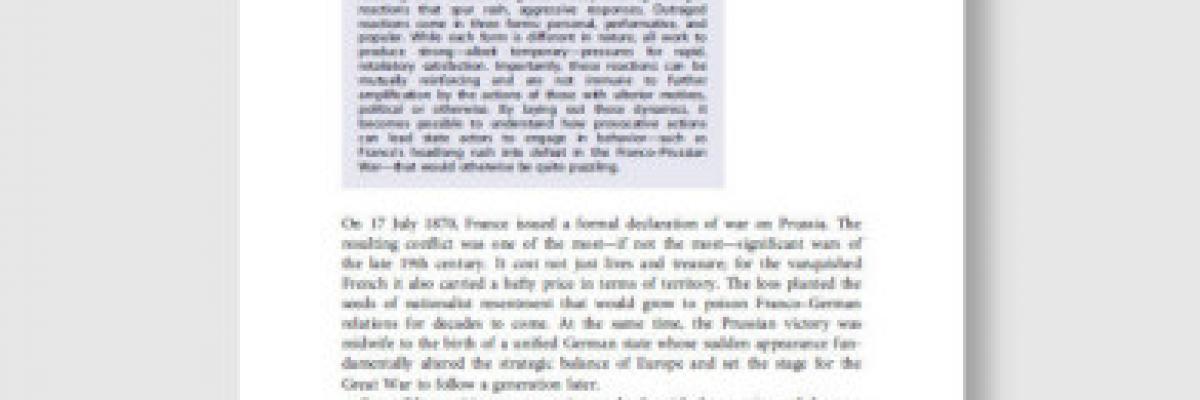
This article presents a theory of provocations. Precisely, it defines provocations as actions or incidents that state actors perceive as intentionally and wrongfully challenging or violating their values and goals, thereby eliciting outraged reactions that spur rash, aggressive responses. Outraged reactions come in three forms: personal, performative, and popular. While each form is different in nature, all work to produce strong—albeit temporary—pressures for rapid, retaliatory satisfaction. Importantly, these reactions can be mutually reinforcing and are not immune to further amplification by the actions of those with ulterior motives, political or otherwise. By laying out these dynamics, it becomes possible to understand how provocative actions can lead state actors to engage in behavior—such as France's headlong rush into defeat in the Franco–Prussian War—that would otherwise be quite puzzling.


